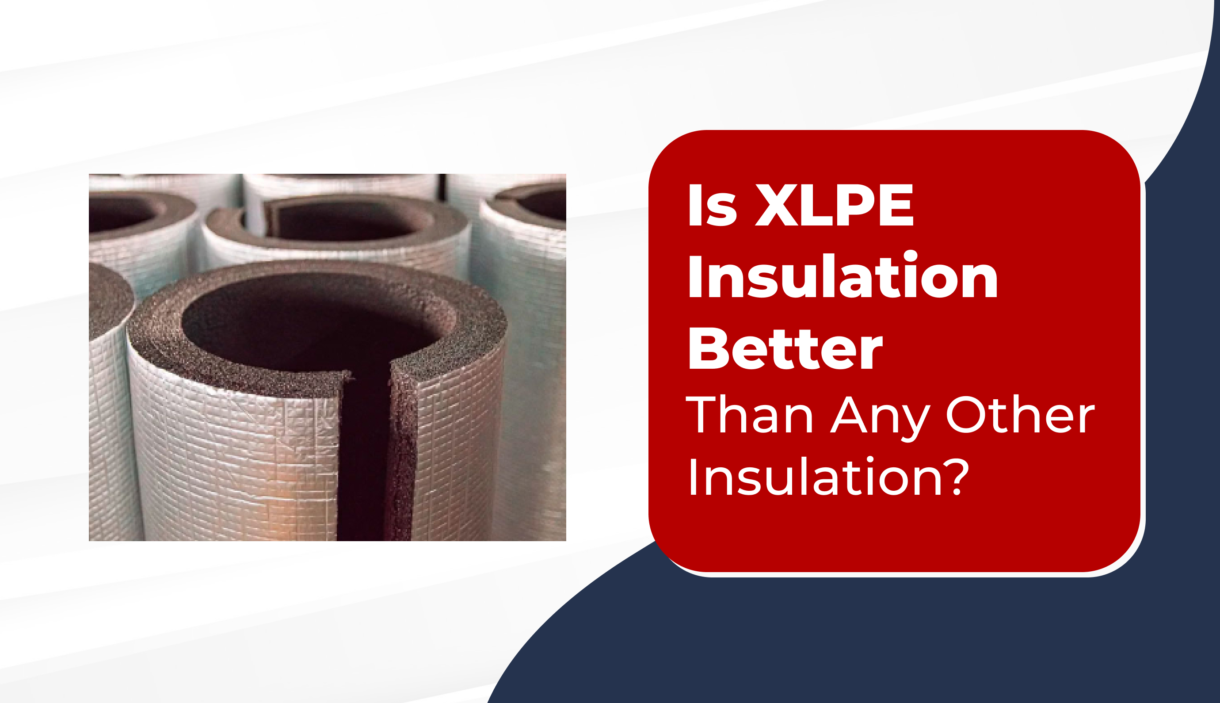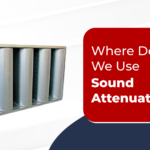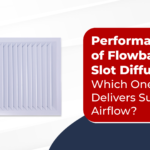Is XLPE Insulation Better Than Any Other Insulation?
When it comes to choosing insulation for HVAC, electrical cables, or industrial applications, the materials you choose can significantly impact energy efficiency, safety, and long-term performance. One insulation material that has gained attention in recent years is XLPE (Cross-Linked Polyethylene) insulation. Known for its outstanding properties, XLPE is becoming a popular choice in industries ranging from HVAC systems to electrical and power cables. But how does it compare to other insulation types, such as PVC or rubber insulation?
At Air Master, we focus on providing high-quality insulation materials, including XLPE, to ensure your systems run efficiently and safely. But what makes XLPE insulation stand out in the market? Let’s dive into why XLPE might be a better option compared to other traditional insulation materials.
What is XLPE Insulation?
XLPE insulation is a type of polyethylene that has undergone a process called cross-linking, where the polymer chains are chemically bonded, giving it superior strength and performance characteristics. This insulation is primarily used in high-performance cables and pipes, offering a reliable solution for harsh environments and heavy-duty applications. It is highly resistant to heat, moisture, chemicals, and physical stress, making it a go-to choice for various industries, including HVAC and electrical installations.
Advantages of XLPE Insulation
1. Superior Temperature Resistance
XLPE insulation can withstand a wide range of temperatures, typically from -40°C to 90°C, and up to 105°C in certain high-performance applications. This makes it ideal for both hot and cold environments, especially where traditional insulation like PVC or rubber might degrade or lose its effectiveness.
2. Improved Durability
Cross-linked polyethylene is known for its durability and long lifespan. Unlike PVC or rubber, which can become brittle over time and may degrade under stress, XLPE maintains its structural integrity, ensuring that cables and systems insulated with it last much longer. This reduces maintenance and replacement costs.
3. Excellent Chemical Resistance
XLPE insulation is resistant to many common chemicals, oils, and solvents. This makes it ideal for use in industrial environments where the risk of exposure to harsh substances is high, giving it an edge over materials like PVC that may degrade in such conditions.
4. Better Electrical Performance
In electrical cables, XLPE provides enhanced dielectric strength, reducing the risk of electrical faults. The insulation material can withstand higher voltage levels compared to other types, making it more suitable for high-power applications.
5. Enhanced Environmental Performance
Since XLPE is resistant to moisture and has a low water absorption rate, it is ideal for use in areas prone to moisture or high humidity. Unlike PVC, which may absorb water and degrade over time, XLPE ensures that systems stay functional and efficient in various environmental conditions.
6. Lightweight and Flexible
XLPE insulation is not only lightweight but also highly flexible. This makes it easier to install, especially in tight spaces, without compromising the integrity of the system. The flexibility ensures a smooth, hassle-free installation, which is a significant advantage over more rigid materials.
Comparison with Other Insulation Types
While XLPE offers numerous advantages, it’s important to compare it with other popular insulation materials like PVC, rubber, and fiberglass.
- PVC Insulation: PVC is widely used due to its affordability and good performance in low-temperature environments. However, it doesn’t match XLPE in terms of temperature tolerance, chemical resistance, or durability. PVC can degrade over time, especially in high-temperature or harsh chemical environments.
- Rubber Insulation: Rubber offers flexibility and good temperature resistance, but XLPE outperforms rubber in terms of long-term durability, especially when exposed to oils or chemicals. Rubber is also prone to wear and tear more quickly than XLPE.
- Fiberglass Insulation: Fiberglass is commonly used for thermal insulation in industrial applications. However, it doesn’t have the same mechanical strength or moisture resistance that XLPE insulation offers. XLPE’s cross-linked structure makes it more reliable in high-performance settings.
Conclusion
When it comes to choosing the right insulation material for your HVAC system, electrical cables, or industrial applications, XLPE insulation offers significant advantages over traditional materials. With superior temperature resistance, chemical resistance, durability, and better electrical performance, XLPE proves to be a more efficient, reliable, and long-lasting option for a wide range of industries.
At Air Master, we provide high-quality XLPE-insulated products designed to meet the most demanding needs. Whether you’re upgrading your HVAC system or working on industrial applications, XLPE insulation provides the reliability and performance you need for long-term success. Choose XLPE for your next project to ensure safety, efficiency, and durability in the harshest conditions.



